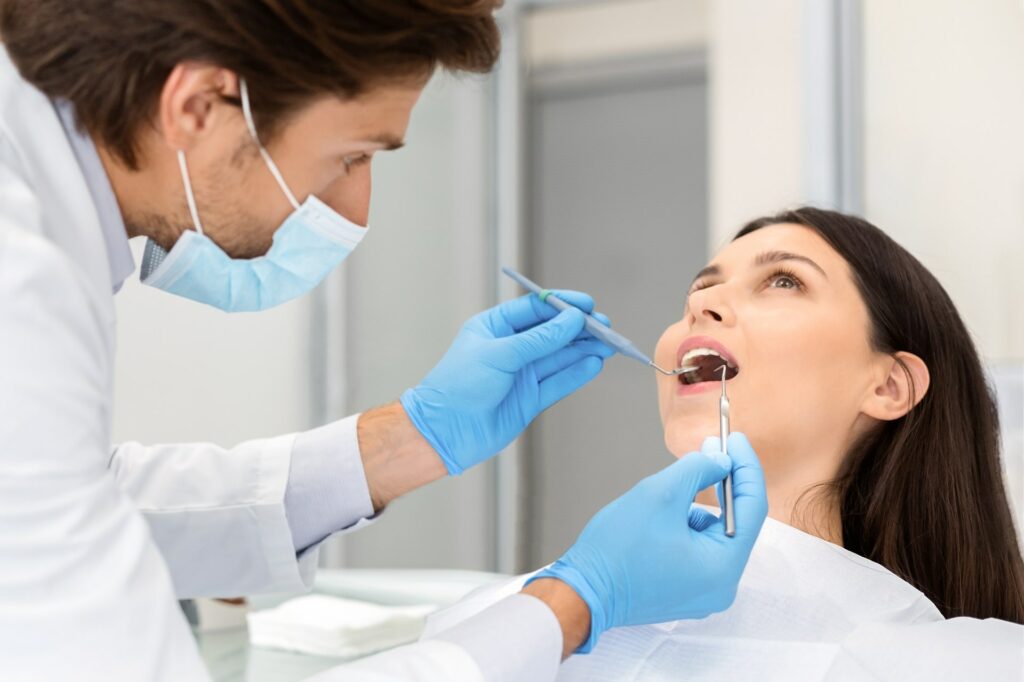Wisdom teeth are the last four molars at the back of the mouth that grow during adulthood. When there is an issue with the growth of the emerging wisdom tooth, it is said to be impacted.
Many dental issues can arise from an impacted tooth. Here are some of the symptoms, causes, and possible treatments you can get at your local dentist’s office.
Implications of Having Impacted Wisdom Tooth
Wisdom tooth erupts in early adulthood, usually between the ages of 17 and 25. By the time they are emerging, sometimes there is no space for healthy teeth to grow. That means wisdom teeth become crooked, causing pain and a host of dental problems.
According to statistics, one in 10 people in the United States will experience an impacted tooth and about 78% of Americans will have had at least one cavity by age 17. Sometimes the tooth may emerge at an angle, shifting other adjacent teeth in the process. While at times, it grows straight down or up as it is erupting, but remains trapped within the jawbone.
When the wisdom tooth is impacted, it can damage surrounding teeth, increasing the risk of cavities and sensitivity. While you may not always experience aches, it is common when there is an infection. If you experience pain, it is advisable to visit your dentist for a checkup.
Symptoms of Impacted Wisdom Tooth
When you have impacted wisdom teeth, infections may develop that may damage the adjacent teeth. As a result, the complications can lead to bad breath, sensitive gums, and pain around the jaw. Because of the swelling around the jaw, you may find it difficult to open your mouth or chew. Again, an impacted wisdom tooth can develop an abscess. For impacted teeth, the abscess, which is when there is puss as a result of infection, develops in between the teeth and flap of gum that covers it.
A dental specialist can examine your teeth, particularly around the molars and gums. Cysts can develop that can encourage bad breath and swollen gums. The molars are hard to reach, making them susceptible to cavities.
When to Remove an Impacted Tooth
When you have an impacted tooth, most dental specialists will recommend extracting one or all the teeth. The earlier it is removed, the easier it will be for you, especially during recovery. That’s because wisdom teeth develop last, and their roots are yet to get deep into the gums. Again, when the pain becomes unbearable and the dental specialist has recommended removing rather than trying to treat it.
Impacted Wisdom Tooth Procedure
Before you can undergo the procedure to remove impacted wisdom teeth, you’ll first meet with your dentist for a consultation. You will discuss medications you’ve been taking, and you will get an opportunity to ask questions.
The surgical procedure will take around 45 minutes to an hour to complete. The patient is usually under local anesthesia. Most people are alert after the surgery with little to no pain. But your dentist can prescribe pain medication for what you may experience during recovery. A dental services professional can prescribe other drugs to manage the swelling and ease the recovery process.
The best way to avoid the adverse effects of an impacted wisdom tooth is through routine dental care. Brushing and flossing your teeth is crucial for preventing infections that can complicate your oral health. Ensure you visit your dentists at least once a year for checkups to prevents complications in the future.






